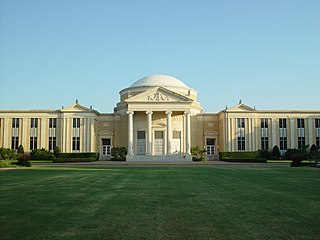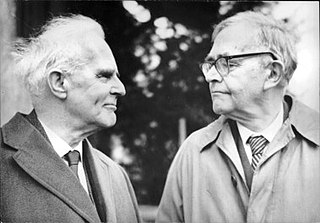
From the time of Plato through the Middle Ages, the quadrivium was a grouping of four subjects or arts—arithmetic, geometry, music, and astronomy—that formed a second curricular stage following preparatory work in the trivium, consisting of grammar, logic, and rhetoric. Together, the trivium and the quadrivium comprised the seven liberal arts, and formed the basis of a liberal arts education in Western society until gradually displaced as a curricular structure by the studia humanitatis and its later offshoots, beginning with Petrarch in the 14th century. The seven classical arts were considered "thinking skills" and were distinguished from practical arts, such as medicine and architecture.

Scholasticism was a medieval school of philosophy that employed a critical organic method of philosophical analysis predicated upon the Aristotelian 10 Categories. Christian scholasticism emerged within the monastic schools that translated scholastic Judeo-Islamic philosophies, and thereby "rediscovered" the collected works of Aristotle. Endeavoring to harmonize his metaphysics and its account of a prime mover with the Latin Catholic dogmatic trinitarian theology, these monastic schools became the basis of the earliest European medieval universities, contributing to the development of modern science; scholasticism dominated education in Europe from about 1100 to 1700. The rise of scholasticism was closely associated with these schools that flourished in Italy, France, Portugal, Spain and England.
Dialectic, also known as the dialectical method, refers originally to dialogue between people holding different points of view about a subject, but wishing to arrive at the truth through reasoned argumentation. Dialectic resembles debate, but the concept excludes subjective elements such as emotional appeal and rhetoric. It has its origins in ancient philosophy and continued to be developed in the Middle Ages.
Islamic studies refers to the academic study of Islam, and generally to academic multidisciplinary "studies" programs—programs similar to others that focus on the history, texts and theologies of other religious traditions, such as Eastern Christian Studies or Jewish Studies but also fields such as —where scholars from diverse disciplines participate and exchange ideas pertaining to the particular field of study.

Richard Granville Swinburne is an English philosopher. He is an Emeritus Professor of Philosophy at the University of Oxford. Over the last 50 years, Swinburne has been a proponent of philosophical arguments for the existence of God. His philosophical contributions are primarily in the philosophy of religion and philosophy of science. He aroused much discussion with his early work in the philosophy of religion, a trilogy of books consisting of The Coherence of Theism, The Existence of God, and Faith and Reason.

A seminary, school of theology, theological seminary, or divinity school is an educational institution for educating students in scripture and theology, generally to prepare them for ordination to serve as clergy, in academics, or mostly in Christian ministry.
Borden Parker Bowne was an American Christian philosopher, Methodist minister and theologian. He was nominated for the Nobel Prize in Literature nine times.

Ernst Peter Wilhelm Troeltsch was a German liberal Protestant theologian, a writer on the philosophy of religion and the philosophy of history, and a classical liberal politician. He was a member of the history of religions school. His work was a synthesis of a number of strands, drawing on Albrecht Ritschl, Max Weber's conception of sociology, and the Baden school of neo-Kantianism.

John Harwood Hick was a philosopher of religion and theologian born in England who taught in the United States for the larger part of his career. In philosophical theology, he made contributions in the areas of theodicy, eschatology, and Christology, and in the philosophy of religion he contributed to the areas of epistemology of religion and religious pluralism.

Claremont School of Theology (CST) is a private graduate school focused on religion and theology and located in Claremont, California. It is an official theological school of the United Methodist Church. Although it is accredited by the WASC Senior College and University Commission, it is accredited with a "notice of concern"; it is also accredited by the Association of Theological Schools in the United States and Canada (ATS).

Heinrich Emil Brunner (1889–1966) was a Swiss Reformed theologian. Along with Karl Barth, he is commonly associated with neo-orthodoxy or the dialectical theology movement.

The Jesuit School of Theology of Santa Clara University is a Jesuit seminary within Santa Clara University and one of the member colleges of the Graduate Theological Union (GTU) in Berkeley, California. Prior to its merger with Santa Clara University it was known as the Jesuit School of Theology at Berkeley (JSTB).
Boston University School of Theology (STH) is the oldest theological seminary of American Methodism and the founding school of Boston University, the largest private research university in New England. It is one of thirteen theological schools maintained by the United Methodist Church. BUSTH is a member of the Boston Theological Institute consortium.
Thierry of Chartres or Theodoric the Breton was a twelfth-century philosopher working at Chartres and Paris, France.
The Boston College School of Theology and Ministry (STM) is a Jesuit school of graduate theology at Boston College. It is an ecclesiastical faculty of theology that trains men and women, both lay and religious, for scholarship and service, especially within the Catholic Church.
William F. Vallicella is an American philosopher.

George Arthur Lindbeck was an American Lutheran theologian. He was best known as an ecumenicist and as one of the fathers of postliberal theology.

Richard De Smet was a Belgian Jesuit priest, and missionary in India. As Indologist he became a renowned Sankara specialist.

Ezekiel Gilman Robinson was an American Baptist clergyman, theologian and educator, born at Attleboro, Massachusetts, and educated at Brown University and at Newton Theological Institution. He preached at Norfolk, Virginia, and at Cambridge, Massachusetts, was professor of Hebrew and biblical interpretation in the Western Theological Seminary, and in 1849 accepted a call to a church in Cincinnati, Ohio. Three years later he was appointed professor of theology in Rochester Theological Seminary and in 1868 was made its president. From 1872 to 1889 he was president of Brown University, and from 1893 to his death he occupied the chair of ethics and apologetics at the University of Chicago. He edited the Christian Review from 1859 to 1864.

The Newman Institute for Catholic Studies is a university college offering courses in theology, philosophy, and cultural studies. The institute was inspired by the English philosopher, writer and cardinal John Henry Newman (1801–1890), and was founded in 2001. It is located in Uppsala and is run by the Society of Jesus; the current rector is Philip Geister SJ. In 2010, the Newman Institute was accredited by the Swedish Higher Education Authority.












